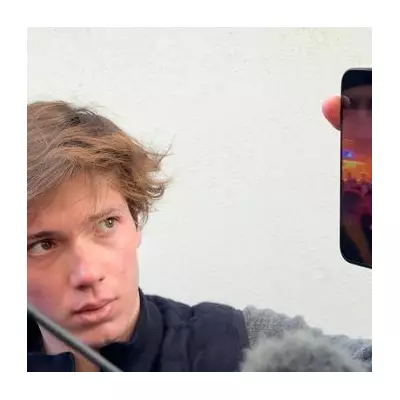
In the ever-evolving world of modern romance, one question continues to ignite passionate discussion among singles across the UK: who should pay on the first date? While dating apps and social norms have transformed how people meet, this particular dilemma remains a significant point of contention.
The Psychology Behind the Bill
Perth-based relationship expert Louanne Ward has sparked a viral conversation with her psychological analysis of this dating ritual. She argues that the act of paying has little to do with money itself and everything to do with subconscious signals, attraction, and how men and women interpret early interactions.
According to Louanne, many men fundamentally misinterpret a woman's offer to split the bill, often sabotaging potential attraction without realising it. 'Some men take what is offered simply because it was offered,' she explained. 'When she offers to split, she's showing you she's not here to take, she's fair, independent and brings value too.'
That brief pause when the bill arrives, Louanne suggests, isn't about the cost of cocktails or a meal. Instead, it functions as a micro-test of character, confidence, and investment. 'What you do next reveals everything about how you see women, yourself, and what you're really worth,' she stated.
What Your Decision Reveals
If a man accepts a woman's offer to pay her share, Louanne claims women often read deeply into this action. 'If you accept, she reads it as reluctance to invest when the cost is low,' she said. 'When you reach for the bill on the first few dates, you're not proving you have money. You're proving she's worth the gesture.'
Louanne emphasised that a woman's offer to go halves is rarely a genuine invitation to save money. It's a social cue. 'She's not thinking about the money. She's thinking about investment behaviour,' she clarified. 'Women carry more emotional risk in dating and relationships. Full stop. So they're highly tuned to these tiny moments as early data.'
She believes that covering the first date communicates essential qualities to a potential partner. 'When you pay, you're showing capacity. Steadiness. Leadership. A willingness to invest before there's any guarantee of return. That signals provider/protector instinct… it's attractive because it's hardwired in her DNA.'
The Modern Dating Dilemma
The interpretation when a man lets the woman pay tends to be brutal, according to Louanne's analysis. 'When you let her pay, she doesn't think "what a modern guy". She thinks "he's stingy, broke, or has no clue about women" - all of which are anti-seductive.'
This concept aligns with what psychologists call 'costly signalling' - proving you see potential worth investing in. 'She doesn't need you to pay. She only cares that you would,' Louanne noted.
However, Louanne also cautioned women against expecting men to automatically foot the bill. 'Most men appreciate the offer so they can say no,' she advised. 'Expectation that he'll pick up the tab before he's decided if he likes you is also anti-seductive.'
She pointed to research from Chapman University revealing that 44 per cent of men would stop dating a woman who never offered to pay. This suggests that men also interpret these early interactions as tests of character and generosity.
Despite many modern women earning as much as or more than the men they date - and being perfectly capable of buying their own dinner - Louanne argues that the underlying psychology of courtship hasn't evolved as quickly as dating apps or equality-focused messaging.
Both men and women are ultimately searching for the same evidence: that the other person is generous, thoughtful, and capable of give-and-take. 'Both sides are watching how the other handles give and take,' Louanne observed.
In an era where singles frequently complain about ghosting, breadcrumbing, and emotional unavailability, the first date bill has become a powerful shorthand. This tiny moment carries disproportionate meaning about character and intentions.
Louanne's final question to her followers encapsulates the modern dating dilemma: Where is the happy ground? Are you taking a second date if he makes you split the first? And when should she offer?
As dating norms continue to evolve, it appears some traditions - or at least the deep-seated psychology behind them - remain stubbornly persistent in the human mating ritual.





